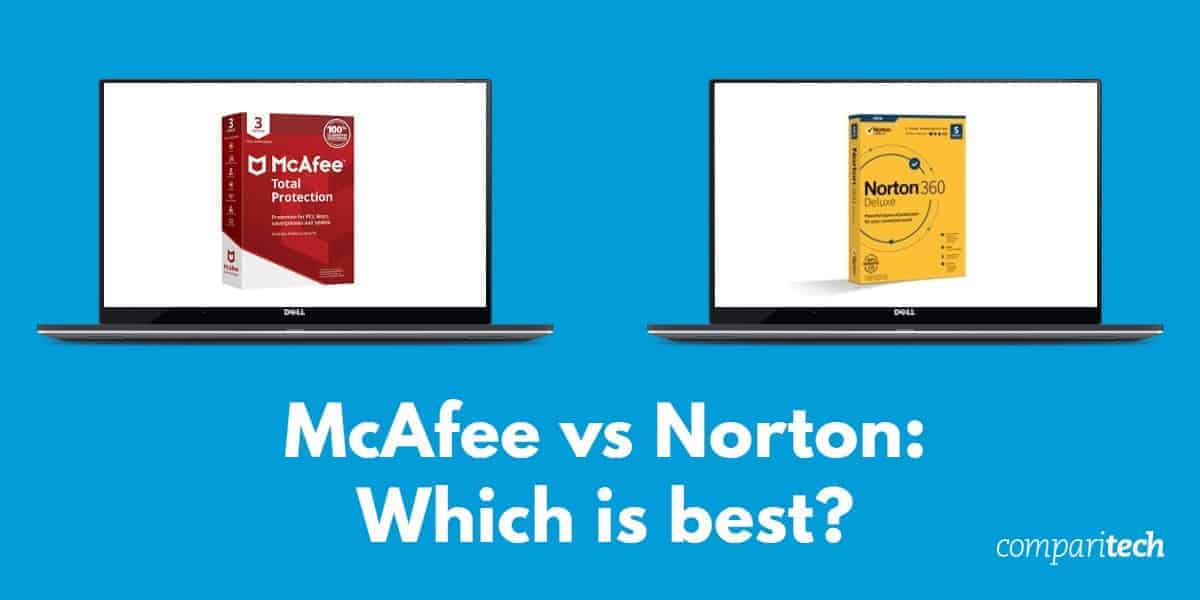
McAfee and Norton are two big names in antivirus software. But how do they compare when it comes to keeping all your devices safe online?
In this guide, I’ll be putting McAfee’s Total Protection (5 Devices plan) and Norton’s 360 Deluxe to the test to find out.
I’ll do more than take a quick look under the hood of each antivirus. I’ll also scrutinize each provider’s background and advanced features to see who really offers the best bang for your buck and all-around security.
McAfee or Norton – which is better?
If you’re short on time, we recommend Norton Antivirus. My testing found Norton to be better with malware, packed with premium features, like a VPN and webcam protection, and with current discounts, it’s easily affordable. Norton’s 360 Standard plan offers key features and solid performance without breaking the bank.
Here’s what I found in my research and testing on McAfee vs Norton:
McAfee
|
Norton
|
| No value | McAfee | Norton |
| Website | mcafee.com | Norton.com | Antivirus and Antispyware | Firewall | Web protection/anti phishing | Password Manager | Webcam protection | Parental controls | VPN | PC Cloud Backup | Ransomware protection | Banking and Payment Protection | Network Attack Protection | Secure data encryption | Automatically update apps | File Shredder | Identity Theft Protection | Performance Optimization |
|---|---|---|
| Best deal (per month) | $3.33 SAVE $80 on a 2 year plan - 5 devices | $3.33 GET 57% off the first year! |
Background
McAfee and Norton are titans in the cybersecurity world. Let’s dive into their histories:
McAfee has been in the game since 1987. Based in California, its threat intelligence spans millions of devices worldwide, ensuring it stays on top of emerging cyber threats.
Norton is equally renowned. It began as Symantec and has been protecting users for over 28 years. The Norton LifeLock brand expanded through acquisitions of Avira and Avast, promising to combine the best features of these acclaimed antivirus solutions. Keep an eye on Norton for exciting developments as they integrate these technologies.
McAfee vs Norton Pricing
Norton and McAfee each offer five subscription tiers at the time of writing.
| No value | McAfee Total Protection Basic | McAfee Total Protection Plus | McAfee Total Protection Premium | McAfee Total Protection Advanced |
| Website | mcafee.com | mcafee.com | mcafee.com | mcafee.com | One year price | $29.99 | 39.99 | $49.99 | $89.99 | Renewal price | $84.99 | $109.00 | $129.99 | $179.99 |
|---|---|---|---|---|
| Best deal (per month) | $2.49 $2.49/mo for the annual plan - 1 device | $3.33 SAVE $80 on a 2 year plan - 5 devices | $4.16 SAVE $85 on a 2 year plan - 10 devices | $6.24 Unlimited Devices - $6.24/mo 1yr plan |
| No value | Norton Antivirus Plus | Norton 360 Standard | Norton 360 Deluxe | Norton 360 with LifeLock Select |
| Website | norton.com | norton.com | norton.com | norton.com | One year price | $19.99 | $39.99 | $49.99 | $99.48 | Renewal price | $59.99 | $84.99 | $104.99 | $149.99 |
|---|---|---|---|---|
| Best deal (per month) | $1.66 Get 66% OFF an annual plan | $3.33 Save 52% on your first year | $4.16 Save 52% on your first year | $8.29 SAVE 33% on an annual subscription |
If good value for money is what you’re looking for from an antivirus, I can tell you that both McAfee and Norton have something to offer. If you’re signing up for the first time, Norton offers a promo price for antivirus coming in at $14.99 (at the time of writing). McAfee, on the other hand, starts at $29.99 for McAfee Total Protection single device cover.
It’s worth noting that both providers offer a try-before-you-buy option. McAfee has a 30-day trial, while Norton has a 60-day money-back guarantee, that I used during testing and got my money back, no questions asked.
McAfee Total Protection includes identity protection in the US if you want to know what you get beyond basic protection with your subscription. Norton, however, requires you to be on the 360 plan ($149.99 per year) to access this feature. Both do offer Dark Web monitoring though.
Oh, and for the record, both McAfee and Norton play nice with Windows, macOS, Android, and iOS. So, your desktop and mobile activities are covered.
Effectiveness against malware
I took a hands-on approach to evaluate how effectively McAfee and Norton combat malware. My testing combined real-time protection checks with malware samples from EICAR, complemented by expert data from AV-Comparatives and AV-Test labs for a comprehensive picture.
| No value | McAfee | Norton |
| Website | mcafee.com | Norton.com | Eicar Sample 1 | Blocked | Blocked | Eicar Sample 2 | Blocked | Blocked | Eicar Sample 3 | Blocked | Blocked | Eicar Sample 4 | Blocked | Blocked | Live Sample 1 (Adware) | Blocked | Blocked | Live Sample 2 (Trojan) | Blocked | Blocked | Live Sample 3 (Trojan) | Blocked | Blocked |
|---|---|---|
| Best deal (per month) | $3.33 SAVE $80 on a 2 year plan - 5 devices | $3.33 GET 57% off the first year! |
Read on for a snapshot of my findings.
Real-World Defense: Both solutions detected and blocked live malware, with Norton slightly more consistent in preventing file downloads.
EICAR Tests: Again, both performed well, with McAfee having a slight edge in initial blocking of potential threats.
Quick Scans: This is where I observed a difference. Neither McAfee nor Norton detected the malware samples in quick scan mode, highlighting the importance of regular full-system checks.
Independent Lab Results
To get a broader perspective, I looked at the latest reports from AV-Test and AV-Comparatives:
- Protection Power: Both McAfee and Norton consistently score high. Norton pulled ahead slightly in real-world protection tests, earning a perfect score from AV-Test and an impressive 99.99% detection rate from AV-Comparatives.
- False Alarms: McAfee shines here, with fewer instances of incorrectly flagging safe files than Norton. This means a potentially smoother user experience with fewer unnecessary disruptions.
Impact on PC performance
Obviously, the primary task of an antivirus is to protect your computer from external threats and this can sometimes require a lot of processing power, which can slow your PC down. To test out the impact on PC speed and performance, I’ve recorded my experience using both McAfee and Norton.
To test the impact on performance, I first recorded the time a full and quick system scan took to complete with each piece of software. During each, I then monitored any noticeable drop off in my PC performance looking at processing and memory.
| No value | McAfee | Norton |
| Website | mcafee.com | Norton.com | Full Scan Time (minutes) | 223 | 121 | Number of scanned objects | 785000 | 1,420,276 | Full Scan CPU Utilization % | 100 | 84 | Full Scan Memory Utilization % | 75 | 75 | Full Scan Disk Utilization (seconds) | 253 | 381 | Control CPU Utliization % (no scan) | 12 | 14 | Control Memory Utilization % (no scan) | 10 | 72 | Control Disk Utilization (seconds) (no scan) | 66 | 13 | Quick Scan Time (seconds) | 633 | 171 | Quick Scan CPU Utilization % | 39 | 37 | Quick Scan Memory Utilization % | 77 | 76 | Quick Scan Disk Utilization (seconds) | 912 | 41 |
|---|---|---|
| Best deal (per month) | $3.33 SAVE $80 on a 2 year plan - 5 devices | $3.33 GET 57% off the first year! |
First up, I ran a full scan with Norton, which took 121 minutes to complete its run. While it ran, I noticed a slight drop off in my computer’s performance, particularly when opening and closing apps or accessing websites. A short time after this, I ran a quick scan of my system and it took 171 seconds to complete the task.
McAfee ran the full first scan on my PC in 223 minutes. The McAfee quick scan was completed in 633 seconds.
When looking at actual performance figures, I found that Norton had slightly higher utilization of Control CPU and Control Memory than McAffee when no scans were running. However, during the full scan, Norton used less CPU and about the same memory as McAfee.
I have also looked at the benchmarking tests from AV-Comparatives and AV-Test to find out how each measures up in terms of impact on PC performance.
The Performance Test measures how installing the antivirus affects PC speed during some common tasks. This includes:
- Downloading files
- Browsing websites
- File copying
- Installing/uninstalling applications
- Archiving / unarchiving
- Launching applications
The results of the test conducted in October 2019 show that McAfee scores top marks with a rating of very fast across all tasks performed. Norton scored slightly lower, with six ratings of very fast and two of fast.
AV-Test’s performance results from September-October 2019 give Norton full marks and show that the software outperforms industry averages in several categories. McAfee also scores 6.0/6.0, outperforming many industry averages when running on both a standard and high-end PC.
When it comes to performance, the latest results show that McAfee performs slightly better in benchmarking tests, although it is only a marginal victory. This backs up my own findings, where both products had a very minor impact on speed and performance. In fact, I ran several day-to-day tasks with the antivirus running in the background and had no issues with lag or functionality.
McAfee vs Norton features
Both McAfee and Norton offer more than basic protection, including:
- Firewalls
- Password managers
- Network security scanners
Unique Features of McAfee Total Protection:
- File Shredder: Permanently deletes sensitive files, leaving no traces.
- Encrypted Storage: Secures sensitive files with 128-bit encryption.
- Identity Theft Protection: Offers monitoring and recovery tools (available with auto-renewal).
Unique Features of Norton 360 Deluxe:
- PC Cloud Backup 50 GB: Backs up PC content to the cloud, essential for ransomware protection.
- Secure VPN: Protects private information, especially useful on public Wi-Fi.
- PC SafeCam: Secures your webcam against blackmail scams and unauthorized access.
The value of these additional features depends on individual needs, with each offering unique tools for enhanced security.
Sign up & Installation
It’s easy enough to sign up for McAfee. For first-timers, the first-year discount is automatically applied at the checkout. The order also lists the Virus protection pledge and the Identity Theft Protection—but it is important to ensure you leave auto-renewal on if you want to benefit from this offer.
Downloading the installation file took just a few minutes, while installing McAfee Total Protection was also quick and easy. I ran through a few installation options, and the software was soon up and running. I set the first scan to run in the background, taking about 10 minutes to finish.
The Norton checkout was simple and clear, with the first-year discount shown and the regular renewal price shown underneath. Norton also tried to push other services at the checkout point, but I ignored this offer. After entering my details and buying the software, I used the link to download and install the security suite. Less than 10 minutes after starting the process, I was underway running the full antivirus check on my PC.
How easy is the interface to use?
Like most modern antivirus interfaces, McAfee and Norton offer intuitive, user-friendly, and pretty straightforward designs. Both applications look nice enough, but which is smoother and more intuitive?
McAfee has a clean look, with white and dark grey as the primary colors. The main dashboard displays the current system security status and a menu of links to get to popular settings.
Functional buttons are at the bottom to launch virus scans quickly, update apps, or remove trackers. The screen layout is imperfect, but it is quite easy to use.
Norton uses an interface divided into one main panel with four blocks along the bottom, keeping everything within one click. The top panel lets you know the current protection status. Norton uses alerts to inform you about changes in the software or any issues, which can be annoying.
Customer Support
Norton offers 24/7/365 support on all of its product tiers. You will find an FAQ section, community forum, and live chat online. There is also a phone support number you can call, plus Facebook and Twitter accounts you can contact.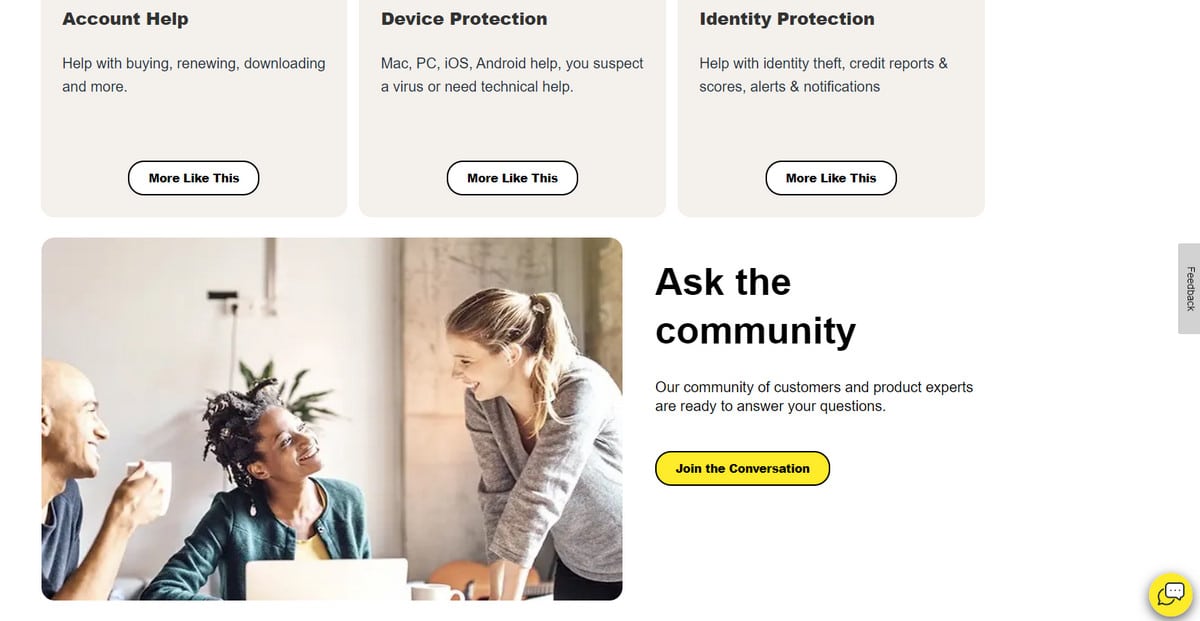
McAfee has clear navigation to get you to different topic areas for support on its website, including help with PC, Mac, mobile or billing. A virtual assistant offers guided help, plus a community forum to post your questions.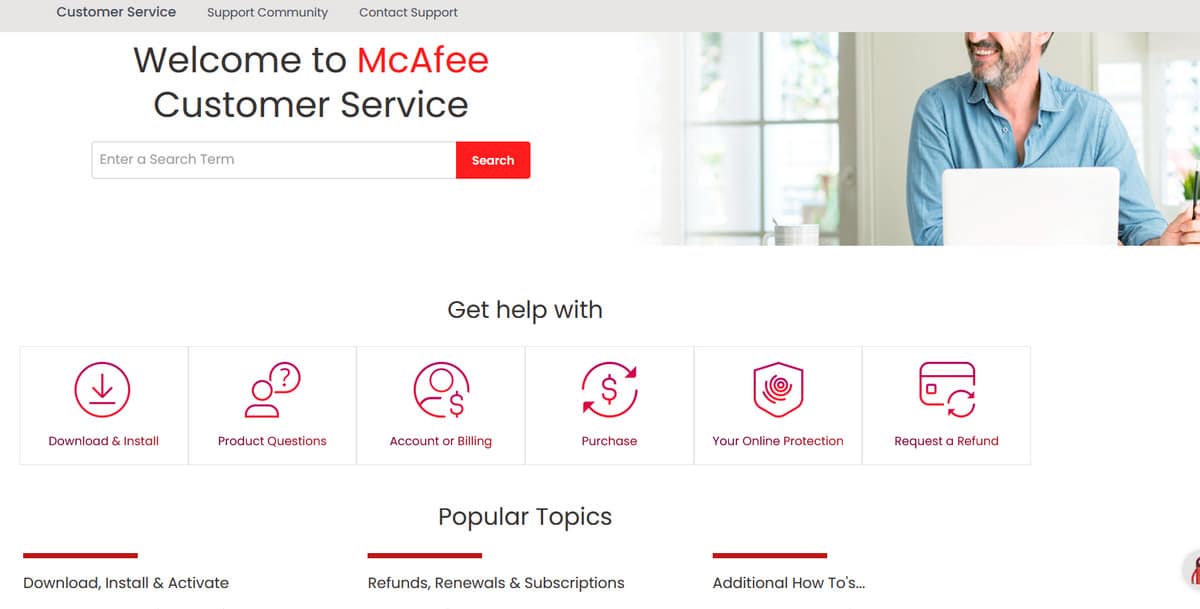
McAfee also offers help from the self-service knowledge base or technical help from live chat or social channels.
McAfee vs Norton conclusion
Not a major surprise, but Norton is my pick here. While McAfee is a good all-round product, Norton comes in at a similar price point with better protection scores and slightly more useful security features such as a VPN, webcam protection, and ransomware protection, so I would give Norton the edge.
When it comes to speed, Norton was not as strong as McAfee but this was only marginal and not enough on its own to knock Norton off the top spot.
Our Methodology: how we choose the best antivirus products
Selecting the best antivirus goes beyond reviews or malware removal claims. Our criteria include:
- Compatibility: We prefer antiviruses compatible with major platforms, especially Windows and macOS, and ideally iOS and Android.
- Malware removal: We test each antivirus’s ability to detect and eliminate malware.
- Performance impact: We assess how each antivirus affects system performance.
- Usability: Antiviruses should be user-friendly, with advanced settings for more tech-savvy users.
- Support: We look for 24/7 support options like live chat, email, or ticketing.
- Value: We consider pricing, including discounts for new subscribers and money-back guarantees.
- Benchmarking: We compare our findings with those of leading test labs for consistency in malware detection and performance.
Should I use a free antivirus solution? What's the difference between free and paid apps?
The antivirus industry pretty much invented the ‘freemium’ model of software distribution. Give users just enough to buy into the brand and the product and then do everything possible to make them upgrade.
There is nothing wrong with the free versions of antivirus software; particularly from respected brands. Free protection is better than no protection or relying on built-in defense tools. But there are so many threats and attack vectors out there, the most surefire way to protect your device is to purchase a paid-for antivirus application.
When you consider the cost of your machine and the value of all the data you have on it, an AV subscription really is a drop in the ocean!
Can I run more than one antivirus product at a time?
In general, I wouldn’t recommend it. Running scans is a resource-intensive job that can slow your machine down at the best of times. That’s why we recommend picking the right tool for the job in the first place! The only time it might be worth installing a second program is if you’re certain that you have been infected with malware and your current product doesn’t pick it up.
Do I need a VPN too?
A virtual private network (VPN) is an encrypted connection that provides privacy and security when browsing the web. You can use a VPN to access blocked content on the web and prevent your ISP, government and companies from seeing exactly what you get up to online.
An increasing number of antivirus providers are including a VPN with their suite of tools. Some are decent; however, if you’re really serious about protecting your privacy, I suggest you check on some of the products recommended in our Best VPN article.
How do I uninstall McAfee?
McAfee can be uninstalled from the Windows Add/Remove programs area or you can download McAfee’s custom tool to ensure a full uninstall. To do so:
- Download the MCPR tool.
- Double-click MCPR and click Yes, Continue, or Run if you see a security warning.
- Follow online prompts.
For Macs, look for the removal tool in your applications folder. Run it. Job done!
How do I uninstall Norton?
- Download the Norton Remove and Reinstall tool.
- Double-click the NRnR icon.
- Read the license agreement and click Agree.
- Click Advanced Options.
- Click Remove Only.
- Click Remove.
- You may be prompted to restart your machine. Click Restart Now.
Does McAfee slow down your computer?
No, McAfee does not slow down your computer. In fact, it helps speed up your computer by protecting it from malware and other security threats that can negatively impact system performance. However, if you have a lot of programs running in the background alongside McAfee, this can slow down your computer. So, it’s essential to ensure you only have the programs you need running in the background.
Why do I need security software?
Security software is important because it helps to protect your computer from viruses, malware, and other online threats. It can also help to keep your personal information safe from identity theft and other types of fraud. In order to choose the right security software for your needs, it is important to understand the different types of threats that exist and how they can impact your computer.
One of the most common types of threats is viruses. Viruses can infect your computer and cause it to malfunction or even crash. They can also spread to other computers on your network, making them more difficult to protect against. In order to remove a virus from your computer, you will need to use antivirus software.
What are the consequences of not using security software?
Not having security software can leave your computer vulnerable to viruses, malware, and other online threats. This can result in data loss, identity theft, and other types of fraud. In some cases, not having security software can also make your computer more difficult to use and can lead to system instability.
How does McAfee work?
When you install McAfee, it will scan your computer for existing viruses and malware. If any are found, it will remove them and quarantine them so they can’t do any damage.
McAfee will also scan any new files or downloads for viruses before they are opened. This helps to prevent any new viruses from infecting your computer.
McAfee is constantly updated with the latest virus definitions, so it can protect against the latest threats. It also has a feature called Real-Time Protection, which blocks malicious software before it can run on your computer.
You can schedule regular scans with McAfee, or set it to scan automatically when new files are downloaded. It will also run a scan any time you try to open a file that could be infected. If any threats are found, you’ll be alerted so you can take action.
Are there any compatibility issues between McAfee and Norton antivirus and other security products?
While McAfee and Norton are designed to be compatible with most applications and operating systems, there can still be compatibility issues with other security products. Running multiple antivirus or security programs simultaneously can cause conflicts, which may reduce the overall effectiveness of your security solution, lead to system instability, or even create vulnerabilities.
These compatibility issues can arise due to several reasons:
- Overlapping features: When two or more security products provide similar features, such as real-time scanning or firewall protection, they may interfere with each other’s operation, causing performance issues and reducing the efficacy of both programs.
- Resource consumption: Running multiple security programs can consume significant system resources, resulting in slower device performance and potentially causing system crashes or instability.
- False positives: Multiple security products may identify each other’s components as potential threats, leading to false-positive detections and unnecessary warnings.
To avoid compatibility issues and ensure the best protection for your device, it’s generally recommended to use a single, comprehensive antivirus solution. If you switch from one antivirus provider to another, uninstall the previous antivirus software before installing the new one. This process will help prevent conflicts and ensure the smooth operation of your chosen antivirus software.
Additionally, before installing a new security product, check the provider’s website for any known compatibility issues with other software or operating systems. If you encounter compatibility issues after installation, consider contacting the antivirus provider’s customer support for assistance in resolving the issue.

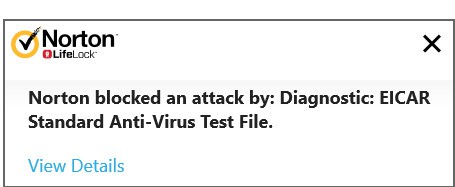

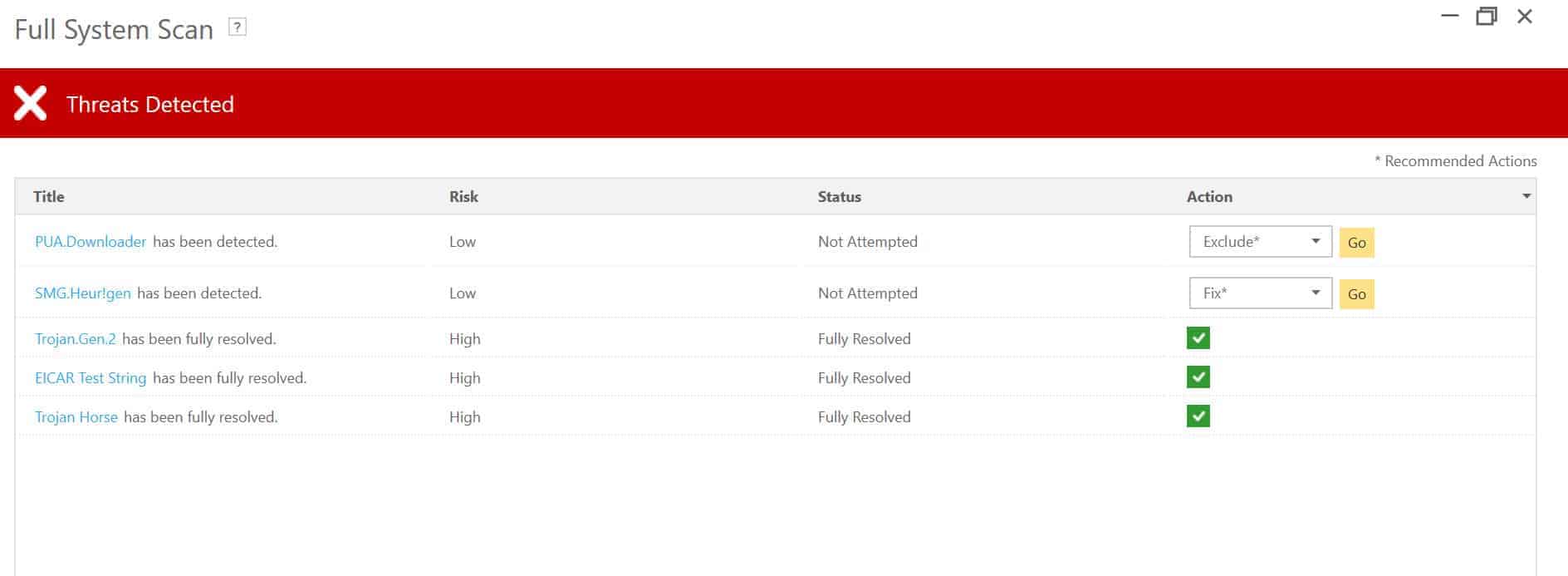
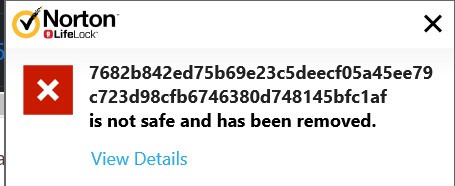
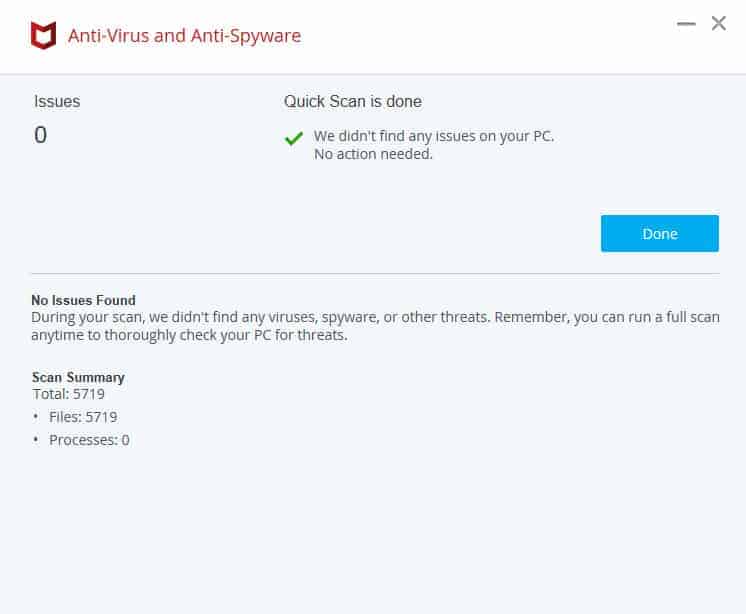


This article is very informative.
I understand the Mcafee
program better.
Thank You, Rose 🌹
Clear, concise, elder friendly! Easy decision to make! Thanks.